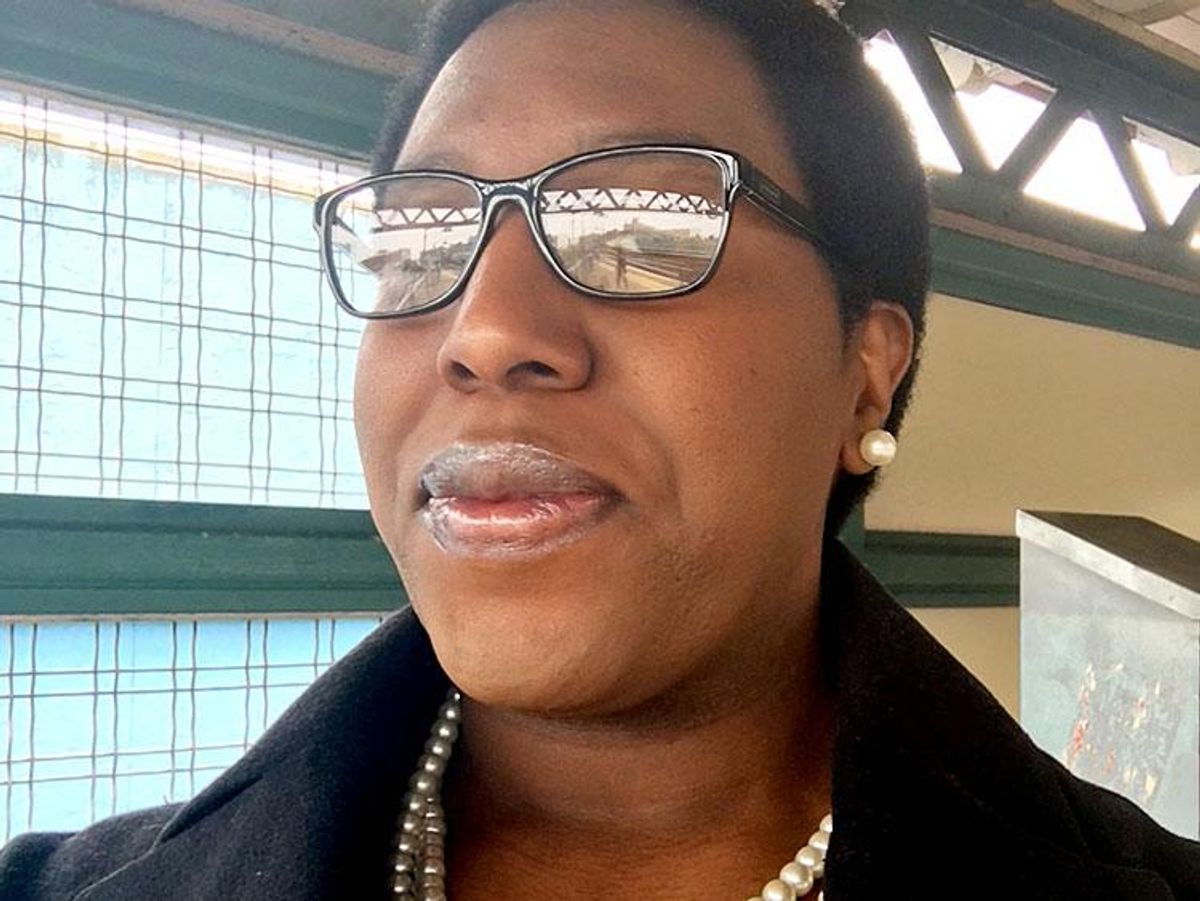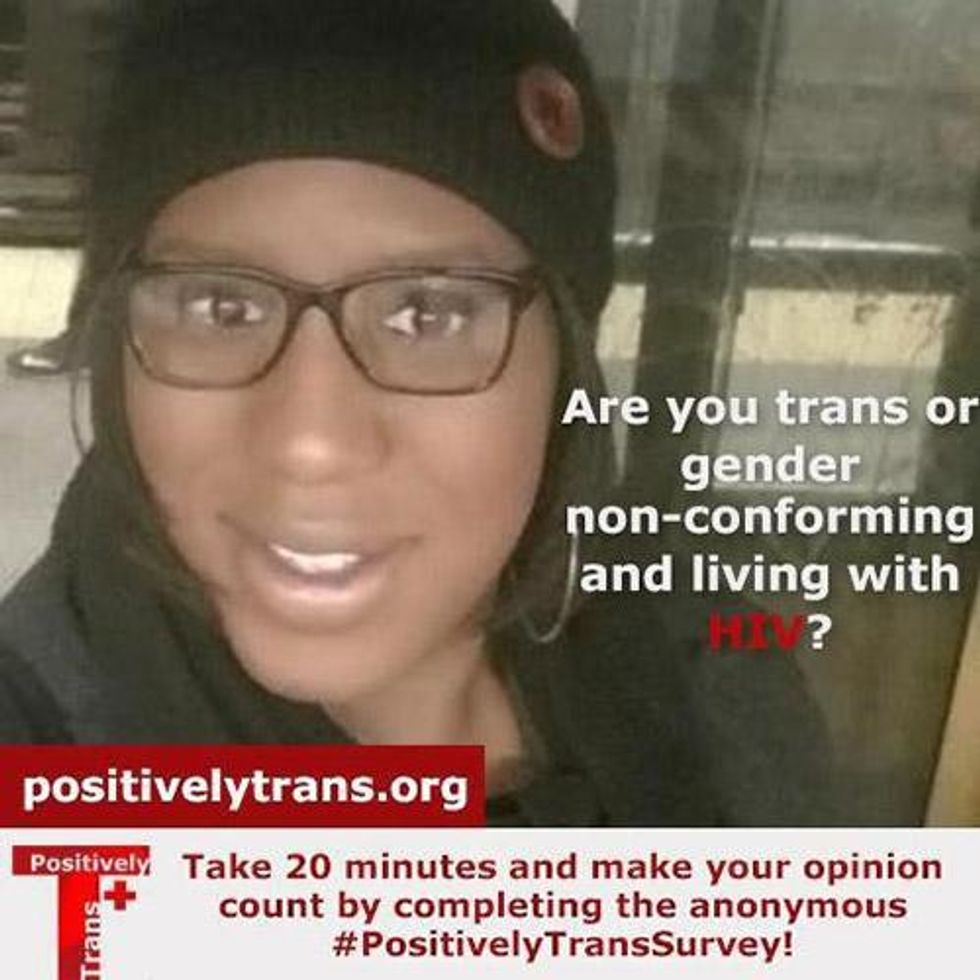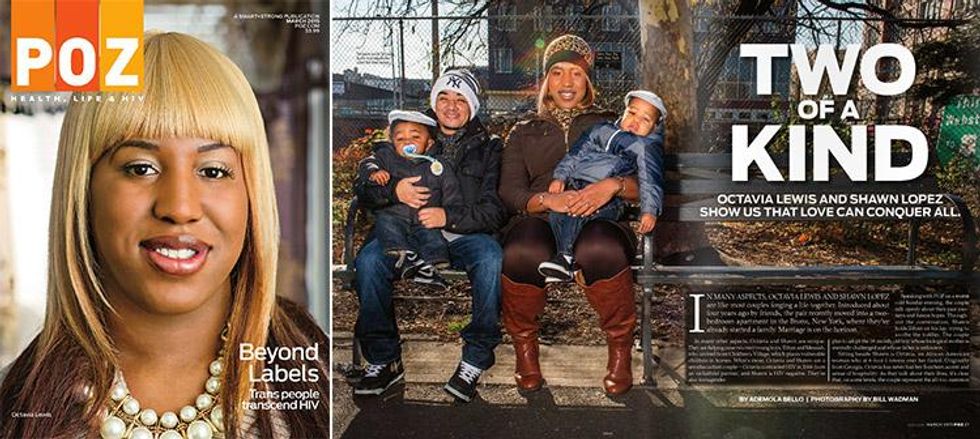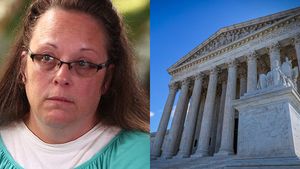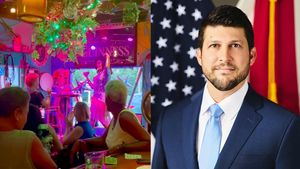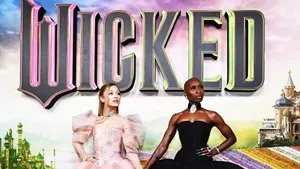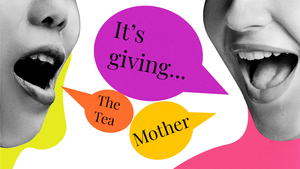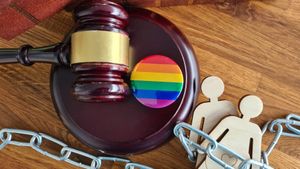According to the CDC, 56 percent of African American transgender women had positive HIV test results compared to 17 percent of white or 16 percent of Hispanic/Latina trans women.
As a black trans woman, Octavia Lewis is intimately familiar with these statistics, and the questions they spark that she feels are too often “laid at our feet on what do we think or where do we see gaps in services.”
One reason that rates are so high among trans women of color is that transphobia, racism and homophobia create a combustible cocktail that frequently explodes into violence and discrimination. Trans women face rampant discrimination in employment, housing, and social services.
Lewis says “the lack of resources” are compounded by “the fact that majority of trans women —especially those of color — who are employed are underemployed and rarely get promoted beyond front line staff [even] at these LGBT organizations who claim to be inclusive.”
Like far too many trans women, Lewis has had to turn to sex work to survive. Not surprisingly, trans women who do sex work have even higher risks of becoming HIV-positve as Lewis has. To address this reality without further stigmatizing trans women, Lewis says, “I think the first thing we as a community and society as a whole can do is to stop shaming people for doing what they have to do in order to survive. There’s not many of us who relish at the opportunity to sell our bodies; but because of scarcities in opportunities and resources that’s pretty much the only opportunity one has.”

Personally, Lewis is determined to prevent what others say about her to “carry any weight or occupy any space” in her life. “If I no longer care what my family members have to say, I sure as hell am not going to allow what strangers have to say bother me,” she explains, offering a mantra for the rest of us.
Lewis has a Masters in Public Administration/Health Services Management, and is a Doctoral Candidate in Public Health/Advocacy & Leadership at Capella University; so it’s no surprise she’s whip smart and has a strong command of academic precepts.
“We have to begin to shift the paradigm in the way in which we structure conversations around the language in which we use to begin to have a dialog about the disparities of our community,” she says, calling on the trans community to focus less on correct terminology and more on addressing the real world economic inequalities facing trans women of color. Any solution Lewis adds, needs to avoid patronizing, top-down charity, while offering “empowerment and not enablement nor from a negative connotation.”
Until recently, Lewis worked at The Hetrick-Martin Institute, which provides services to at risk LGBT youth. There she was an educational specialist in charge of transgender programing, and facilitated a bi-weekly group called T-Lounge. She also co-created, designed and implemented the curriculum for Common Voices, a four-week course on harm reduction methods for youth who engaged in survival sex work.
“I learned a lot of useful skills while working at HMI,” Lewis acknowledges. “Which has fueled my passion for activism and advocacy work for homeless youth and those living with HIV/AIDS.”
In fact, Lewis is hoping to parlay those skills into launching her nonprofit organization, Islan Nettles Community Project, named in memory of a 21-year-old trans woman who was beaten to death in Harlem. “I hope to receive my 501C3 for the Islan Nettles Community Project within the upcoming few weeks,” Lewis says. Then she’ll “begin to create, design and implement programs for trans and gender non-conforming people in my community.”
Through her own activism, Lewis has gained skills that will help her pursue that dream. She graduated from the Audre Lorde Project Trans Justice School, and has spoken at numerous venues including being the keynote speaker at the Buffalo Trans Health Conference, panelist at NYU’s Living Out Loud Series and at Columbia University addressing gender and sexuality. She’s also led workshops at the annual Newark LGBTQ Youth Summit, co-facilitated JOG (Just One of the Girls) Intervention, and written for The Root (I’m Black, I’m Trans, I’m HIV-Positive, and I’m OK”).

Last year, Lewis and her transgender partner Shawn were featured in the cover story of POZ magazine. She says that despite being a serodiscordant couple, they have “nothing to negotiate. We practice safe sex and he gets regularly checkups. I love him enough to keep him as safe as I can. We have a child that deserves both of his parents but in the case of my death at least he will have one of us and that’s what’s important.”
The couple, who have been foster parenting, are hoping to adopt their son. Lewis calls parenting, “the most rewarding experience ever.”
“I have a child that loves me unconditionally the way that I love him,” she gushes. “We are awaiting for the termination of parental rights on our son so that we may proceed with the adoption process.”
But, she admits that fostering can have its downsides. Previously they had a child that was in their home “since he was an infant” but was then reunited with his birth family. The separation was made all the harder because Lewis no longer has contact with the boy or his family, “which is really difficult to process.”
But that hasn’t scared the couple off; they are still fostering two other children and hope to fost-adopt a pre-teen next. Lewis calls becoming a mother, “My greatest accomplishment in life.”
“I always dreamed of it,” she explains. “But [I] never thought I would be able to achieve it. Growing up as one gender and transitioning to another, no one really told me that I could be a parent let alone a mother.”
The biggest thing Lewis would like to see change for trans people? “The ways in which we are treated: as it stands now animals have more rights than people of transgender experience. PETA will hire attorneys and lobby for stricter punishment against people who hurt animals but yet laws in states like Mississippi and North Carolina can legally discriminate against us.”
“We as a community — and society as a whole,” Lewis insists, “deserve better from our elected officials and should demand it.”
As she launches the Islan Nettles Community Project and lobbies for better treatment for trans people and people living with HIV; Lewis needs only one thought to keep her motivated: “My son is my sole reason for not giving up and has made me continue my fight for equal rights and protection for people of transgender experience.”
